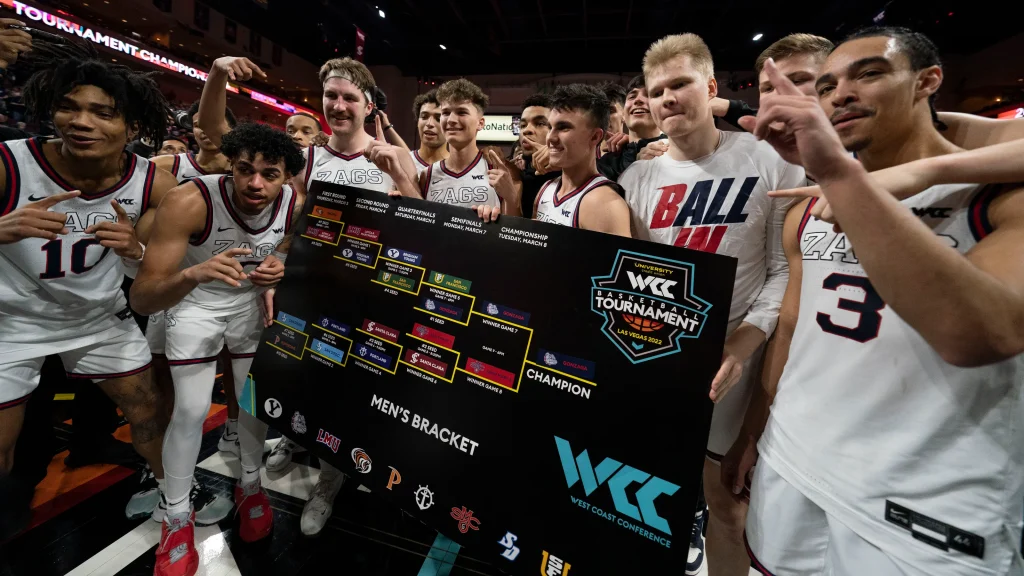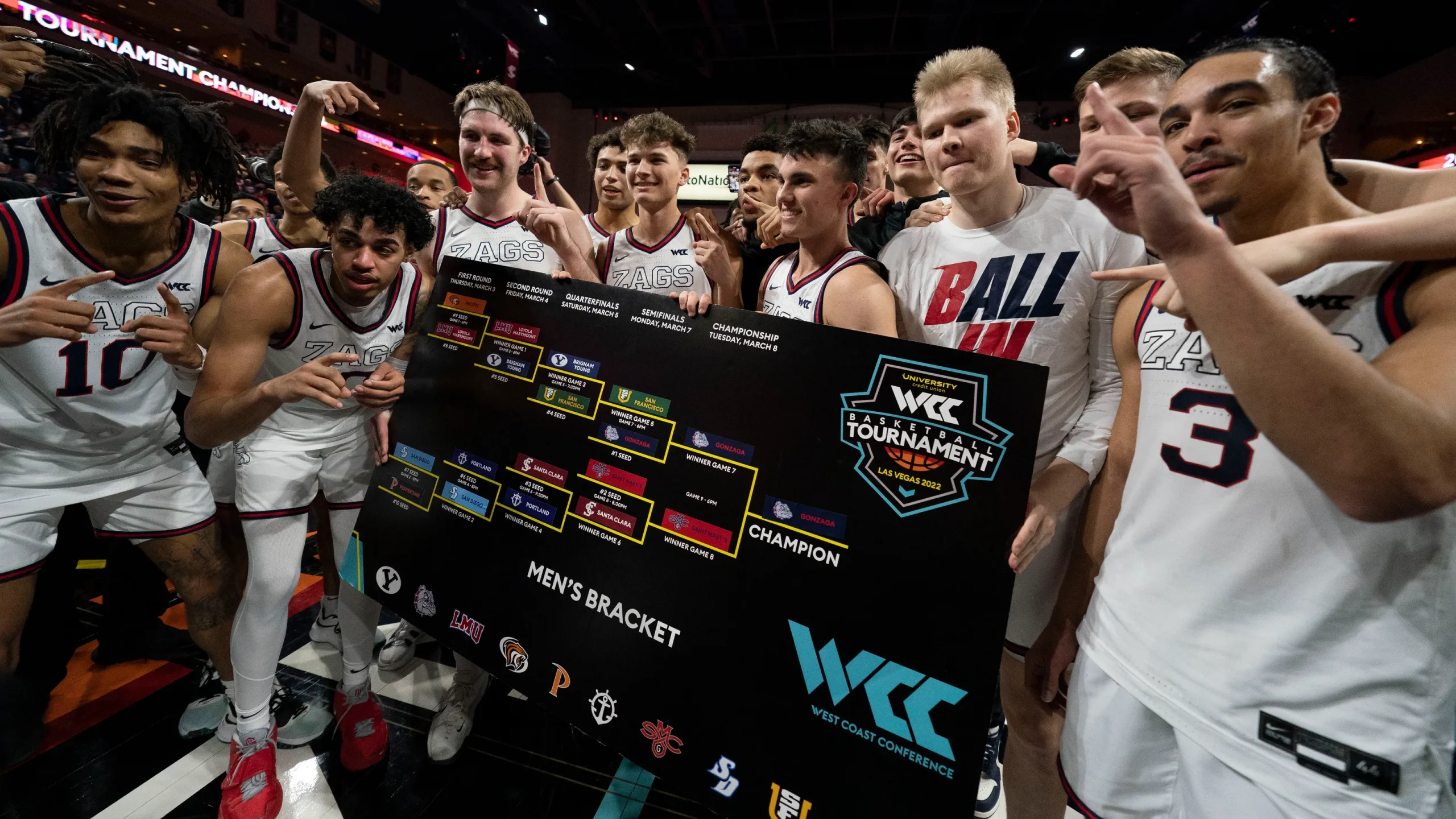These are common March Madness bracket mistakes.
Key Points
– Picking too many upsets is a common March Madness bracket mistake.
– Bettors often too many preconceived notions when they fill out their bracket.

Common March Madness Bracket Mistakes
It’s something sports fans look forward to every year. With Selection Sunday complete, fans all over can get their March Madness bracket and fill it out.
It’s an adventure looking to see where your favorite team fit in, which teams have favorable draws, and much more. Selection Sunday leaves some teams out of the tournament and there are always a few surprises that make the tourney as at-large bids.
What lies ahead is the best month of college basketball of the season. There will be upsets and eventually a team will be crowned the NCAA national champion.
Bettors will fill out brackets in an attempt to win big. However, most will make some of the more common mistakes when filling out their March Madness bracket. They too often make a number of assumptions that can blow up their bracket. Here are five of the most common NCAA tournament bracket mistakes.
ICYMI: DON’T BE MISLED WHEN HANDICAPPING THE NBA FINALS
The Travel Factor
Top seeds usually get the luxury of playing closer to home than others. Every once in a while, a team gets lucky and actually plays in its home arena. For most teams, there is a lot of travel involved in each of the first and second rounds of the tournament.
Every year, experts debate how teams are affected by all the travel. The fact is, every team in the tournament must travel at some point. The teams have done it all season long. Think about teams like Texas A&M traveling to the southern East coast to play other SEC teams like Georgia and Florida.
With every team traveling in the tournament, the overall effect is minimal. By this point in the season, teams are used to dealing with travel. Plus, in the first two rounds of the tournament, teams that win play in the same arena. There is no additional travel that weekend.
The only real travel issue is for teams that are selected to participate in play-in games. All four play-in games are in Dayton, Ohio. The winners of those games must travel and play two days later somewhere else. That is the one time when travel may be an issue for bettors filling out a bracket and/or wagering on games.
Overvaluing the Crowd
Sometimes, a college basketball tournament team may get lucky and get to play close to home. People frequently assume it means the crowd will be supportive and vocal for that team.
It’s true that a team playing closer to home will probably have more fans in the stands. However, it’s not a true home game and the crowd impact will be far lower in a tournament game.
Tickets for every basketball team participating in a certain pod are guaranteed, and many of them are sold long before the bracket is determined. This means that it may not always be easy for a team’s fans to find tickets to their games.
In games featuring lower seeds that happen to be located far away from where they play, it’s not surprising when there are not that many fans. People want to see the more popular teams play even if they are not a fan.
Ignoring Potential March Madness Bracket Upsets
If you have filled out a March Madness bracket in the past, you know that there will always be upsets. Some gamblers look at the bracket and make their initial selections based on assumptions.
The assumption is that the higher-seeded team is better than the lower-seeded team. This is not always the case. For example, a conference winner from a mid-major conference will frequently be seeded lower than an at-large team from a larger conference. Bettors often don’t know when to back a mid-major against a major team. Sometimes, the mid-major conference winner is experienced, in the midst of a winning streak,and may easily pull off an unexpected victory.
You can be missing out on some significant chances for early value if you base your judgments on the NCAA conferences the teams compete in, how popular a team is on a national level, or how much media coverage they receive.
Picking Too Many March Madness Bracket Upsets
Then, there is the opposite mistake. Because there are upsets in every NCAA tournament, fans and bettors see too many potential upsets. All of the so-called experts pontificate about this team and that team pulling off upsets.
For bettors, nothing beats handicapping NCAA tournament Cinderella teams. However, the reality is this. Since the NCAA expanded the tournament in 1985, there have been an average of a dozen upsets in every tournament. An upset would be a team seeded at least two spots below its opponent. A first round win by a No. 9 over a No. 8 is not an upset, but a tenth-seed beating a seventh-seed is.
With that in mind, the average number of upsets in the first round of March Madness is six. Picking any more than six upsets in the first round is a common mistake when filling out your March Madness bracket.
It’s easy to force yourself to believe that most every lower-seeded team can pull off an upset. It’s one of the reasons why we watch the NCAA tournament. We love to see the upsets, but that clouds our judgment too often.
The truth is that many more higher seeds will win in the first round, and many higher seeds won’t face much competition in doing so. Yes, you should keep an eye out for upsets, but don’t go overboard.
Looking Too Far Ahead
NCAAB bettors will often look too far ahead when betting on the tournament. It’s crucial to avoid looking past the first round of games when you’re a college basketball handicapper.
It’s tempting for bettors to look ahead in the bracket at potential pairings and intriguing games that might take place. While this is good for fans filling out their March Madness bracket, it is completely meaningless for bettors, who might wonder if they should buy college basketball picks.
Unless you are betting in the futures market, those hypothetical pairings have little meaning until they really happen. The only thing that matters to bettors is the play-in games and the 32 first-round games. Everything else is a distraction.






